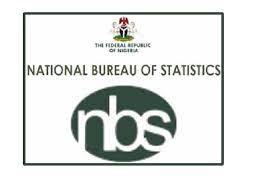With the launch of Developing Engineering Leaders Through Her (DELT-HER) app that will upscale the contribution of women engineers to Nigeria’s economic growth and development by National Agency for Science and Engineering Infrastructure (NASENI) and the Presidential Implementation Committee on Technology Transfer (PiCTT), analysts say the country’s female engineers now have a platform to share their ideas; BINTA SHAMA reports.
Introduction
Studies have shown that gender imbalance in the engineering sector in Nigeria has worsened over the years. It is therefore critical to channel available resources at creating a shift in this paradigm. According to the National Bureau of Statistics (NBS), women make up an average of 22 per cent of the total number of engineering and technology graduates.
The largest disparity is found in postgraduate enrolment between male and female in engineering and technology and this was estimated at 12.06 per cent for females while male enrolment was 87.4 per cent. This reflects that a lot more females lose interest in the pursuance of a career in engineering after a first degree. All this translates badly in an overall level of female participation in the Nigerian engineering practice which stands at about 5%, this falls short of the global average of around 28%. Nigeria’s economy would potentially attract massive gains from harnessing increased female innovative activities in engineering and technology to it.
Nurturing female talents
The National Agency for Science and Engineering Infrastructure (NASENI), under the supervision of the Presidency in collaboration with the Presidential Implementation Committee on Technology Transfer (PiCTT) came up with this initiative to nurture female talent, foster innovation and as well, build a supportive ecosystem.
This initiative is said to have the potential to transform Nigeria’s technological landscape and unlock a brighter future for all. A call for proposals was launched on the 8th of March 2024 (International Women’s Day). Successful applications would be funded by the Nigerian government, while also partnering with experienced professionals in engineering and business to serve as mentors that would support the ideas/innovations to become startup companies. The mentored female engineers would be the mentors for future projects under this initiative.
Increasing female participation
While giving his welcome address, the Chairman Presidential Implementation Committee on Technology Transfer (PICTT) Muhammed Dahiru, disclosed that, in the quest to fulfill the bilateral agreement between the Federal Republic of Nigeria and the Czech Republic has in the last two years been sponsoring research and development (R&D) projects nationwide under the Delta-2 programme.
“In taking a further step forward on the Delta-2 programme, the Committee is throwing the weight of its support behind women, through the DELT-Her project. The project is focused on encouraging more female participation in Nigeria’s engineering sector. Recent statistics reveal the dire need for deliberate actions to be targeted at the existing gender imbalance in this sector, to inspire inclusion while also expanding contribution channels to the nation’s GDP.
“The Committee, through the continuous support of the National Agency for Science and Engineering Infrastructure (NASENI) is determined to fund innovative and commercially viable ideas in engineering and technology, proposed by women. Therefore, today’s launch of call for proposals from young women, marks the beginning of a chain of events which are expected to lead to engineering start-up companies owned and run by women. To support the actualization of the birth of multiple start-up companies from ideas selected under this project, each successful applicant will be matched with female mentors who are industry giants both in engineering and business. It is firmly believed that the shoulders of these giants will provide the supportive environment that is required for success. The submission portal for proposals will go live from tomorrow and proposals will be accepted till 20th May when submission closes. This will be followed by a period of evaluation and selection of qualified innovations for sponsorship.”
Opportunity platform
Earlier, the Executive Vice Chairman NASENI Khalil Suleiman Halilu said, “DELT-HER is what I call an “opportunity platform”, through which girls and young women can pitch and present their exciting and groundbreaking engineering ideas, for funding by the National Agency for Science and Engineering Infrastructure (NASENI), through our Presidential Implementation Committee on Technology Transfer (PICTT).
“What we seek to do is close the gender gap in engineering, inspire the next generation, provide financing support for new ideas and projects, and ultimately strengthen the entire engineering ecosystem. Interestingly, it was just in December 2023 that the Nigerian Society of Engineers (NSE) elected the first female President in its history, Mrs Margaret Oguntala.
“She happens to be the 34th President of the NSE– which means all previous 33 Presidents have been men. This gives one an idea of the starkness of the gender imbalance in the sector: It is this imbalance that DELT-HER seeks to correct, by focusing attention and funding on young women, and very importantly, creating and cultivating public awareness around the need to train and mentor more women into the engineering professions.
“This awareness component of the work is one that we will take very seriously, working through schools, and storytelling campaigns. We intend to, through DELT-HER, double the number of female engineers in Nigeria over the next five years. This will mean working extensively at the level of secondary education, which is where young girls make the vital decisions regarding choice of professional field,” he added.
Gender diversity
In her keynote address, the President of the Nigerian Society of Engineers Engr. Margaret Aina Oguntala said, “It is essential to reflect on the significance of gender diversity in engineering. While we have made significant strides in recent years to promote inclusivity and equal opportunity, there is still much work to be done.
“Women remain significantly underrepresented in the engineering workforce, facing barriers and challenges that hinder their full participation and advancement in the field. However, it is imperative to recognize that diversity is not just a moral imperative. It is also a strategic imperative. Research has consistently shown that diverse teams are more innovative, creative, and effective in solving complex problems. By harnessing the diverse perspectives, talents, and experiences of women engineers, we can drive greater innovation, competitiveness, and sustainable development in our society.
“The ‘Developing Engineering Leaders Through Her’ initiative seeks to address these challenges and unlock the full potential of women in engineering. Through targeted interventions, mentorship programs, leadership development initiatives, And advocacy efforts, we aim to empower women engineers to excel in their careers, assume leadership roles, and contribute meaningfully to the advancement of our profession and society as a whole.”
During goodwill messages, the Senate committee Chairman on NASENI Senator Ezenwa Francis Onyewuchi said that engineering is multi-tasking and women can do it better than men. “So what we are doing today is to situate the problem, where women should be in science and technology, I am a big supporter of this programme going on today. We must ensure that we give credit to our women; we must ensure that we remove cultural biases and let the women take their rightful places. So i’m filling us as number one in this project.
“As God will have it, I also have oversight responsibilities, so I want to assure the women that I will diligently do my oversight to make sure that women take their rightful positions in the area of Science and technology. And that it is also important to say that an environment will be created for women to excel in science and technology. So count on me, count on the Senate and the National Assembly of the Federal Republic of Nigeria. Support women, support this project.
Earlier, the Senior Special Assistant to the President on Citizenship and Leadership Miss Biola Rinsiola wished the organisers and committee members success in implementing the initiative as well as promoting the initiative, adding, “I’m passionate about women leadership across all sectors and Engineering is a very key once again, I like to commend the NASENI leadership, because it has been a revolution since he came in here; every single day there is an update on NASENI.”
Quoting Chuli Chi Chung, the Chairman, Association of Women Engineers of Nigeria (APWEN Abuja chapter) Engr Kaltume Giwa, said “if they didn’t give you a seat at the table, bring your folding chair. I’m here to say that our EVC/CEO has graciously prepared a table for women and put golden feet around the table. And so we are here as (APWEN) Association of professional women engineers in Nigeria, taking care of all women in Nigeria to say that you will have our full support and we are going to mobilize all of these women to take advantage of the Delt – Her initiative.”
Objective
According to the report by the duo organization, that DELT-Her is an initiative that seeks to create opportunities for women in engineering, by attracting and supporting innovative engineering ideas which would ultimately be mentored and developed into startup companies.
The success stories from the first phase of this initiative would be projected to enthuse school-age girls across the country, with the aim of creating a paradigm shift to favour their choice of engineering as a lifelong career. DELT-Her is inspired by global projects from the Anita Borg Institute, Girl Up! at the UN Foundation, Applied Science Technologists and Technicians of British Columbia among others. The central objectives of the initiative are: “To address the existing gender imbalance in the study and practice of engineering and technology in Nigeria, by sponsoring the innovative ideas of young, female engineers, foster a more inclusive and diverse engineering practice landscape in Nigeria; build a collaborative network of stakeholders including tertiary institutions, business, and industry leaders, who would enable a more supportive environment for women in engineering; and inspire the next generation of female engineers in Nigeria by making female engineering success stories more visible to them.
The portal would close on 20th of May, 2024.




